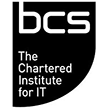IT sales professional
IT sales professionals use technical and product knowledge to advise and guide customers in purchases and to support them in after-sales care
As an IT sales professional, you'll usually work with commercial clients, finding the right technological hardware and software products to suit their business needs.
In pre-sales, this may involve demonstrating features of a particular product. It may also mean responding to a pre-qualification questionnaire (PQQ) and then, if short listed, replying to a more detailed information to tender (ITT) document.
Once the sale of the product or service is completed, ongoing support is usually provided which may include technical help, such as solving faults or problems and advising on appropriate user training.
Types of IT sales
The work of an IT sales professional falls into three main areas:
- pre-sales - giving detailed information about technical specifications and the ways in which they could meet a customer's needs
- sales - negotiating a commercial agreement to the benefit of both the customer and supplier
- post-sales (or after-sales) - providing the support of hardware and software.
Responsibilities
As an IT sales professional, you'll need to:
- speak to customers, either face to face or over the phone
- gain an understanding of customers' specific business needs and apply product knowledge to meet them
- ensure quality of service by developing a thorough and detailed knowledge of technical specifications and other features of employers' systems and processes, and then documenting them
- carry out cold-calling in order to create interest in products and services, generate new business leads and arrange meetings
- identify and develop new business through networking and follow-up courtesy calls
- prepare and deliver presentations and demonstrations of software to customers
- market and promote a portfolio of products by writing and designing sales literature and attending industry events
- maintain awareness and keep abreast of constantly changing software and hardware systems and peripherals
- develop effective sales plans using sales methodology
- provide technical advice to customers on all aspects of the installation and use of computer systems and networks, both before and after the sale
- advise on software features and how they can be applied to assist in a variety of contexts such as accounting, manufacturing or other specialist areas
- meet sales targets set by managers and contribute to team targets
- network with existing customers in order to maintain links and promote additional products and upgrades
- handle hardware or software problems and faults, referring on to specialist technical colleagues where appropriate
- respond to tender documents, proposals, reports and supporting literature
- manage workload in order to organise and prioritise daily and weekly goals
- contribute to team or progress meetings to update and inform colleagues.
Salary
- Starting salaries for IT sales professionals are around £20,000 to £30,000.
- With experience your salary can rise to between £30,000 and £45,000.
- At senior manager level, you can earn up to £70,000, or more.
In most roles, employers offer performance-related bonuses on top of a base salary, called OTE (on-target earnings) in job adverts.
A company car (or car allowance) may be provided for posts where regular travel is required. You might also receive a laptop, mobile phone, health insurance and the option to have shares in the company.
Income figures are intended as a guide only.
Working hours
Working hours are typically 9am to 5pm, putting in extra hours where approaching deadlines require them. You might be required to work longer days to prepare for social evenings and conferences, where you'll network with potential customers. If you're based on a help desk, your hours will likely be organised on a shift basis.
What to expect
- The role is office based, but often involves travelling to clients' premises. Overnight stays away from home may be required on occasion.
- Office locations may change according to the needs of the company, so flexibility and mobility are often prerequisites.
- Self-employment and freelance work are not common, but part-time opportunities do exist.
- Career breaks are difficult because of the rapid developments common in technology.
- Help desk work may be stressful because you have no control over the calls you receive. You might be working to set targets for handling calls or repairing faults within a specific time frame.
Qualifications
This area of work is open to all graduates, but a degree or HND in one of the following subjects may be particularly useful:
- business information systems or technology
- business management
- computer science, software engineering or computer engineering
- electronics
- mathematics
- physics.
While a relevant degree is not always essential, subjects with high technical content, or a business management component, may be favoured by employers. Some large employers require at least a 2:1 for entry onto their graduate schemes.
Having a retail background can help you get into a job selling IT software to the retail industry.
A pre-entry postgraduate qualification is not essential, but a diploma or Masters in computing may be helpful for those without computing knowledge.
Search postgraduate courses in computer sciences and IT.
Skills
You'll need to show evidence of the following:
- a good level of technical understanding, with enthusiasm for new technology and its commercial uses - though having technical skills before you start isn't essential
- self-motivation and a competitive, results-driven attitude
- passion, dedication and focus
- stamina, resilience and the ability to work well under pressure
- confident presentation skills and a professional telephone manner
- time-management skills and the ability to prioritise your workload
- ability to pay attention to detail
- articulate, persuasive and influential verbal communication skills
- ability to work well in teams
- business awareness
- an up-to-date working knowledge of the industry - useful sources include ComputerWeekly.com, Computing and the Institute of Sales Professionals (ISM)
- a full, clean driving licence - may be needed if the job includes regular travel to clients' premises.
Work experience
Experience of a customer service or sales environment will improve your chances of securing a job. Potential employers will be particularly impressed if you can demonstrate evidence of exceeding sales targets and the ability to build successful customer relationships in previous roles.
Any sales experience may therefore be helpful, including working in a call centre or telemarketing role, where sales skills and the ability to meet targets are illustrated.
Advertisement
Employers
Sales is one of the largest job areas in IT. Look for graduate programmes with major IT players as well as roles in small and medium-sized enterprises (SMEs). The main employers include computer manufacturers and software houses, as these need specialists to explain features of their products in non-technical terms to users and those with purchasing power.
Computer retailers are also major employers, where work can include selling to corporate customers, offering a help desk for after-sales service and providing maintenance and support packages.
The growing popularity of online shopping has shown the need for improvements and advances in retail software. This is a high-growth area and a big employer of IT sales professionals.
Telecommunications has also grown rapidly in recent years and the need for IT sales professionals in this part of the sector is consequently increasing.
Given the essential part that computers play in all organisations and the sophistication of the hardware and software available, support staff have a vital role to play in ensuring that customers are aware of its potential and how it suits their needs.
As software and hardware are becoming ever more complex, there is a growing need for support in this area.
Specialist recruitment agencies, such as Saleslogic, handle vacancies.
Look for vacancies at:
Competition is relatively high, so it's worth making speculative applications as well as applying for advertised jobs.
Professional development
Most training is on the job and varies depending on the size of the company. Large graduate recruiters usually arrange a set induction period, which may focus on the aims of the business, individual training objectives, shadowing senior members, mentoring and external courses.
The development of extensive communication skills is encouraged and marketing training may be provided through short courses.
If you work for a smaller organisation, training is likely to be intensive and in-house, aimed at giving you comprehensive technical knowledge of your employer's products. You may also be expected to shadow a senior sales professional, quickly moving into your sales role and taking immediate responsibility for key clients.
Although a lot of the training is tailored to a company's own products and client group, there are also a variety of external training courses and qualifications available.
The ISM offers a range of sales Certificate and Diploma qualifications, from Levels 2-6. It also endorses certain sales training courses, which are run by external organisations. For more information see Professional Academy.
Taking up the many opportunities to attend conferences and industry events will aid in your learning and help you to further develop your product and industry knowledge. Some IT companies, such as Microsoft, offer sales workshops and e-learning courses.
Career prospects
As you advance in this career you'll handle increasingly complex technical queries and you may become involved in the marketing of larger IT systems. Career progression is often reflected in the level you're selling to, like progressing from selling to an individual in a business, up to sales at board level.
You may also specialise in certain types of industry software, such as accounting or supply chain management.
With experience you could move on to a managerial or director role where you'll work at a more strategic level, often with responsibility for budgets and new partnerships.
In help desk work, career progression can come through supervising a help desk team, which would include planning staff rotas and workloads, monitoring the quality of responses and ensuring that targets are met.
Alternative careers
Related jobs and courses




graduate job
Teacher Training Scholarships – Computing
- The British Computer Society
- Competitive salary
- Various locations

